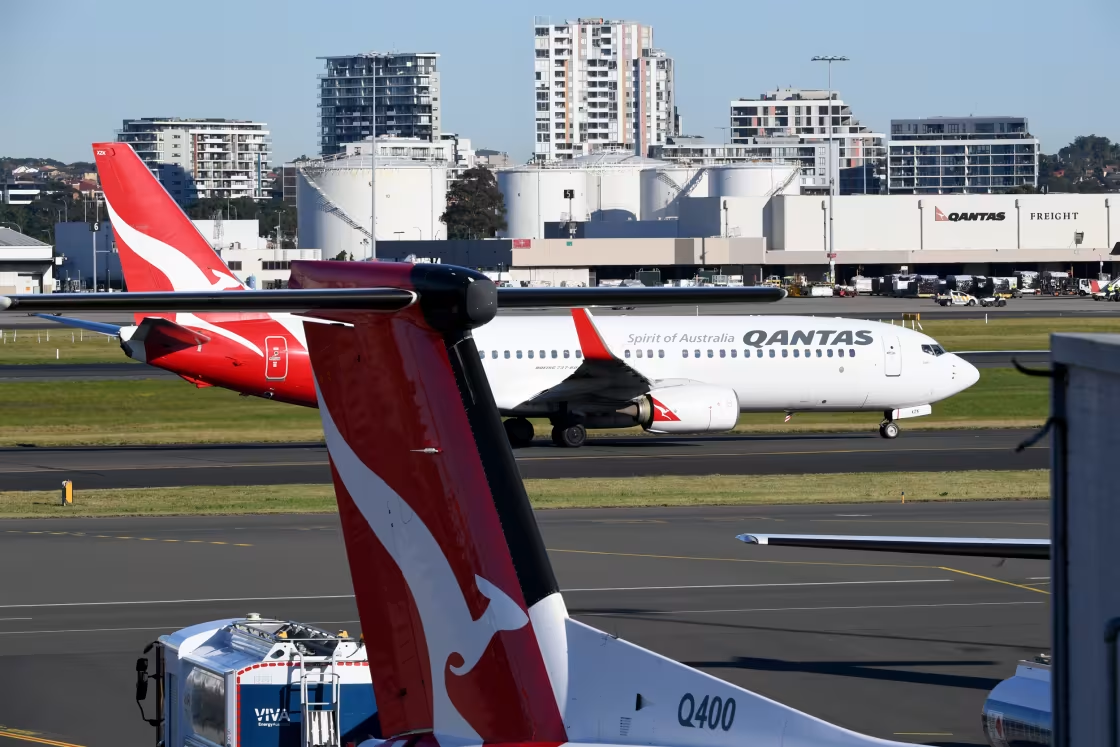Australian airline Qantas has issued a formal apology following an incident last week where an R-rated movie was inadvertently played on all screens during a flight from Sydney to Tokyo’s Haneda Airport. The mishap, attributed to technical issues, has raised questions about in-flight entertainment protocols and passenger comfort.

The film in question, “Daddio,” is known for its mature content, including profanity, sexual material, and brief graphic nudity. Passengers reported that the movie was impossible to pause, dim, or turn off, leading to widespread discomfort, especially for families with children onboard.
A passenger, who shared their experience on Reddit, described the situation as “extremely inappropriate.” They noted, “It featured graphic nudity and a lot of sexting — the kind where you could literally read the texts on screen without needing headphones.” The concerned traveler added that it took nearly an hour before the airline switched to a more family-friendly option.
Qantas acknowledged the error in a statement, saying, “The movie was clearly not suitable to play for the whole flight, and we sincerely apologize to customers for this experience.” The airline explained that due to technical issues, individual movie selection was unavailable, necessitating the choice of a single film for the entire flight based on requests from some passengers.
The incident highlights the challenges airlines face in managing in-flight entertainment systems and content selection. Qantas emphasized that their standard practice in such rare cases where individual selection is impossible is to show family-friendly content. “All screens were changed to a family-friendly movie for the rest of the flight,” the airline stated, adding that they are reviewing their movie selection process to prevent similar occurrences in the future.

This event has sparked discussions about the responsibility of airlines in curating appropriate content for diverse passenger groups and the need for robust systems to manage technical glitches in in-flight entertainment. It also underscores the potential for passenger discomfort and dissatisfaction when such mishaps occur during long-haul flights.
The incident on the Sydney-Tokyo route, a popular connection between Australia and Japan, could potentially impact Qantas’s reputation on this key international route. As airlines increasingly rely on in-flight entertainment as a competitive differentiator, ensuring appropriate content and reliable systems becomes crucial for maintaining passenger satisfaction and loyalty.
Aviation experts suggest that this incident might prompt other airlines to review their own protocols for managing in-flight entertainment systems during technical failures. It also raises questions about the balance between offering diverse, adult-oriented content and ensuring a comfortable environment for all passengers, including families with children.



